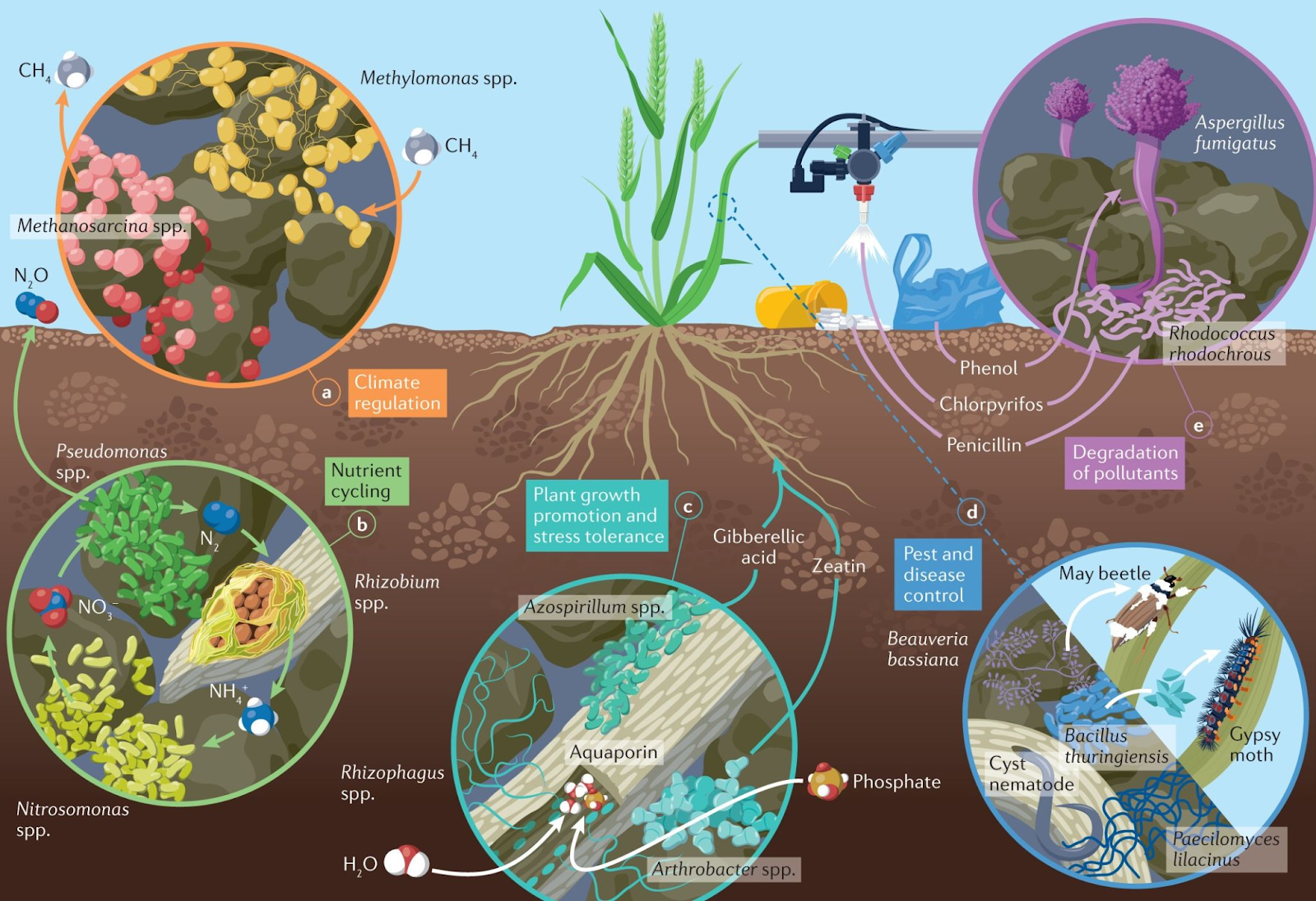Bringing soil microbes together for higher yields.
Michał Słota, of Polish content farmers, delivers an excellent, concise and understandable overview of soil microbes and how the soil microbiome is essential to agroecosystem functioning. Equally importantly, a health soil microbiome is critical for good carbon sequestering (farming), and area which Big Terra is becoming more involved with.
We’re excited about the better application of satellite-based big data learnings combined with mathematical modeling of climate impacted crop yields. And, we applaud that the European Space Agency - ESA and other more local bodies (in the case of Czech Republic) such as Czech-UNDP Partnership for Sustainable Development Goals, Czech Development Agency - CzechAid, People in Need and Caritas Czech Republic In Zambia are willing to look ahead of the curve and support implementation of big data based agricultural performance bench-marking.
Michał goes on to explain with a health soil is so important:
CLIMATE REGULATION
- Mitigation of climate change, i.a. via regulating the terrestrial carbon flux and sequestration.
- Microorganisms - aerobic methanotrophic bacteria such as Methylomonas, Methylococcus or Methylocystis - counteract the excessive methane emission.
- Emissions of nitrous oxide (N2O) are largely driven by microbial processes.
MICROBIAL NUTRIENT CYCLING
- Microorganisms decompose organic material to release plant-available inorganic nutrients.
- Biological nitrogen fixation is carried out by a wide range of diazotrophic bacteria and archaea, such as plant symbionts like Rhizobium and Bradyrhizobium or free-living diazotrophs like Azospirillum and Azotobacter.
- Phosphate-solubilizing bacteria and fungi include Bacillus, Pseudomonas, Enterobacter, Burkholderia, Penicillium and Aspergillus, but many others are continually being identified.
PLANT GROWTH PROMOTION & ABIOTIC STRESS TOLERANCE
- Plants recruit plant-growth-promoting microorganisms (PGPM) that stimulate and regulate plant growth.
- Bacteria such as Pseudomonas, Bacillus, Arthrobacter and Azospirillum and fungi such as Trichoderma and Laccaria can produce or alter the phytohormone levels.
PEST AND DISEASE CONTROL
- Root-associated microorganisms promote plant health through indirect mechanisms, such as competition with pathogens for physical space and resources or induction of systemic resistance and priming for enhanced defence.
- The well-known bacteria with biocontrol capabilities against insects and nematodes belong to the genera Bacillus, Pseudomonas and Streptomyces.
- Common entomopathogenic fungi include Beauveria, Metarhizium, Entomophthora and Verticillium, which are increasingly used in commercial formulations against pests.
TOXIN AND POLLUTANT DEGRADATION
- Soil microorganisms can degrade organic pollutants such as synthetic polymers or herbicides.
- The potential microbial degraders include bacterial genera such as Alcaligenes, Bacillus, Flavobacterium, Pseudomonas, Rhodococcus and Streptomyces, and fungal genera such as Aspergillus, Fusarium, Penicillium and Trichoderma.
Specific microbial consortia can be applied in agricultural practice to facilitate nutrient cycling & unlock the yielding potential of crops. The balanced formulas including rich bacteria inoculants, such as those included in Asfertglobal’s biofertilizer portfolio, have been demonstrated to improve the nutrient availability in the soil & naturally boost crop field performance.


